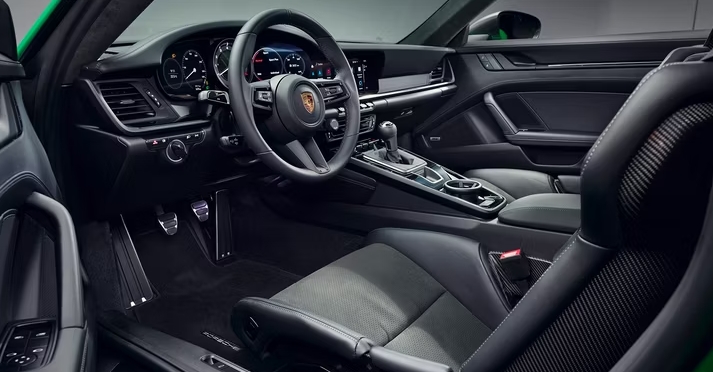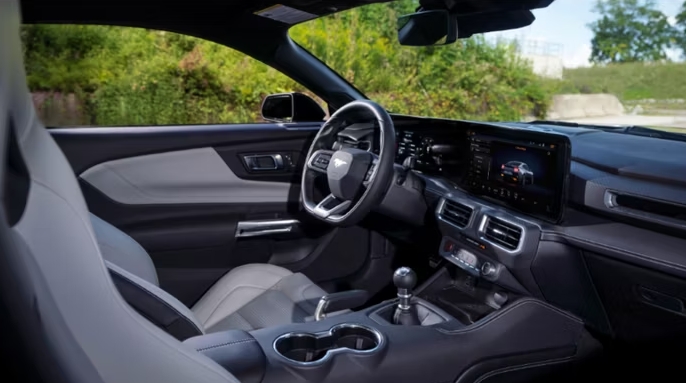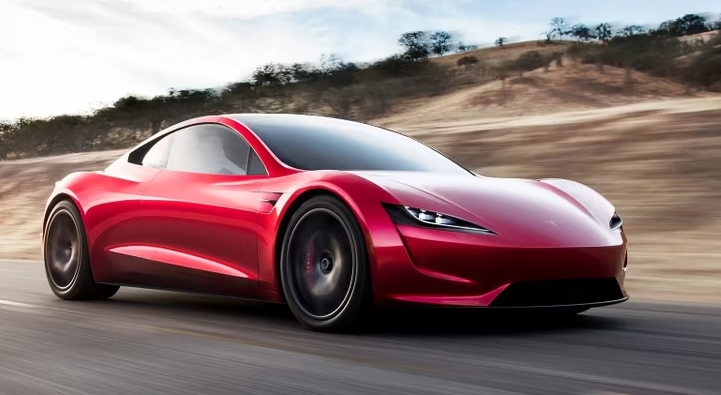Gearheads are finding that despite the lack of gearboxes in EVs, they are actually helping to sustain and even boost the popularity of manual transmissions.
Electric vehicles are rapidly gaining popularity due to their numerous benefits such as reduced emissions, seamless driving experience, and superior acceleration and performance. The Tesla Model S Plaid, Ford Mustang Mach-E, and Hyundai Ioniq 5 are some of the latest EVs that are creating a buzz in the market.
Despite the numerous advantages that electric vehicles offer, there are still some who cannot replace the sensation of driving a real mechanical machine powered by gasoline. This indicates that the recent surge in electric vehicle production will most likely not completely replace the iconic presence of gas-guzzling sports cars.
As electric vehicles continue to dominate the automotive market, traditional manual gearboxes, which offer drivers more control and a thrilling driving experience, are at risk of becoming obsolete. However, there are still reasons to believe that their demise is not yet certain.
The Decline of Gas Cars with Manual Transmissions

Automatic transmissions and EVs are becoming more popular, leading to a decline in the use of manual transmissions in the automotive industry. The majority of new cars are now only offered with an automatic gearbox due to the convenience and ease of use they offer.
- The reliability and performance of EVs and cars with automatic transmissions make them more appealing to buyers seeking convenience and comfort.
- Manufacturing manual transmissions is more complex and costly, resulting in lower profit margins for manufacturers compared to automatic transmissions.
- Recent features like hybrid systems, adaptive cruise control, and autonomous driving are less compatible with manual transmissions, and most customers prefer cars that simplify their daily commutes.
- EVs have a more straightforward powertrain with single-gear direct drives, leaving no room for manual transmissions in the electric vehicle segment.
The declining popularity of manual transmissions is also attributed to their lower efficiency compared to modern automatic transmissions. Automatic cars today are programmed to shift gears at the most efficient times, leading to better fuel economy and gas mileage.
Demand for Manual Transmissions Remains in America

Despite the decrease in popularity and availability, there is still a demand for manual transmissions in America, driven by a niche market of enthusiasts who seek a more engaging and exciting driving experience beyond just getting from point A to point B as efficiently as possible.
Manual gearboxes with three pedals are preferred by most car enthusiasts as they offer a more immersive driving experience, creating a sense of connection and involvement with their vehicles. Shifting gears manually allows them to feel the engine’s power and hear the exhaust roar, providing a unique level of satisfaction and challenge that cannot be replicated by automatic transmissions.
Some recent sports cars that cater to this demand and offer a manual gearbox option include the Ford Mustang GT350R, the Porsche 911 GT3, and the Toyota GR Supra. Although the production of iconic cars such as the Ferrari F40 or the Nissan R34 GT-R will be limited, they will not completely disappear from the market.
However, car enthusiasts who cherish the art of driving and all its challenges will ensure the survival of manual transmissions.
The Surprising Role of EVs in Preserving Manual Cars from Extinction

As EVs become more prevalent, automatic transmissions are likely to become less relevant and possibly even obsolete, due to the smooth and easy ride, and superior acceleration that EVs offer.
Moreover, this transition in the automotive industry may create prospects for specialty automakers that focus on manufacturing high-performance manual sports cars at a premium price. These automakers can cater to the requirements and inclinations of an enthusiastic and dedicated customer base that values the unique driving experience.
Hence, it is likely that manual transmissions will become a scarce and distinct characteristic that sets gasoline-powered sports cars apart from EVs and appeals to buyers seeking a more genuine and sentimental bond with their vehicle.
